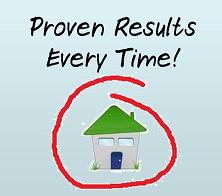What is a good deal?
Almost all my clients start off by initially asking me to find them a
“good deal.” The joke in the office is
if we found this “good deal,” we would buy it ourselves!
Realistically, if your idea of a good deal is saving some
money, which it probably is, then foreclosure auctions and short sales (read my
previous articles about short sales) wouldn’t be a bad idea. Wait, there is a twist though, you have to
show up with all cash, and what you see is what you get. You don’t get to conduct the typical buyer
investigations or have a contingency period.
You win at that auction and the home is yours. With real estate, what you see isn’t what you
always get. There could be problems with
the title or the structure itself so an auction is real risky and that “good
deal” you are looking for might end up being a bad deal. Of course, most people don’t have that much
cash at hand and wouldn’t want to take the risk even if they do.
Another potential “good deal” is if you buy a home that
would need some fixing up. The catch
with this is you need to put some work into it but most buyers don’t consider
this a “good deal” since it involves work and can’t see past the ugly to
realize a home’s full potential.
Let’s examine the typical buyer and seller. A seller wants as much as he can get for a
home, and a buyer wants to pay as little as possible. There is a conflict there don’t you think? When both a buyer and seller meet in the
middle as far as price is concerned, then a deal has been reached!
Buyers that want a good deal must understand that homes
aren’t sold by a giant company that offers clearance sales. They are sold by private entities each wanting
top dollar for their home. Sometimes as
a buyer, you may have to even offer more than what is listed. Is an amount like $5,000 worth getting in the
way of your dream home especially since most home values will appreciate?
In the reverse situation, sellers need to understand that
buyers want to pay as little as they can so like any wise shopper, they will
shop around and compare. If your home is
priced too high then you have priced yourself out of the market. Think about it, you didn’t want the home you
are in now because it was more expensive than other homes at the time did you?
A competitive market analysis where similar homes in the
similar condition are reviewed to arrive at a reasonable price is the best way
to get a snap shot of the current market value of a home. This is beneficial for buyers and sellers
alike to get the best price on a home so it is a win – win situation for both
parties.
ADD ME ON FACEBOOK
ADD ME ON FACEBOOK


